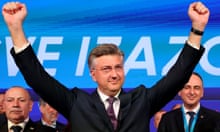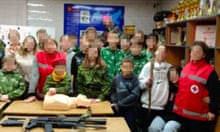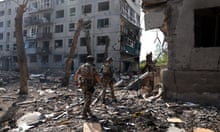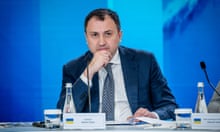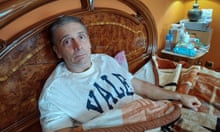Croatian voters are going to the polls in a high-stakes parliamentary election that could significantly change the country’s pro-western stance on issues including European support for Ukraine in its battle against Russia.
Polls suggest the conservative Croatian Democratic Union (HDZ) of the prime minister, Andrej Plenković, could lose its majority to a Social Democrat-led coalition headed by the populist president, Zoran Milanović, who is not officially a candidate.
Despite a welter of corruption scandals, the pro-European Plenković, who has been prime minister since 2016, appeared comfortably assured of a third consecutive term in office until Milanović announced his surprise challenge last month.
The outspoken president’s decision shocked the country, sparked a bitter war of words between the two longstanding rivals, and turned a predictable race into a far more close-run affair, even though Croatia’s top court barred Milanović from running.
The constitutional court ruled on 18 March that the president must first resign since party-political activities were incompatible with the mainly ceremonial office, prompting him to call the judges “peasants” and their judgment “illiterate”.
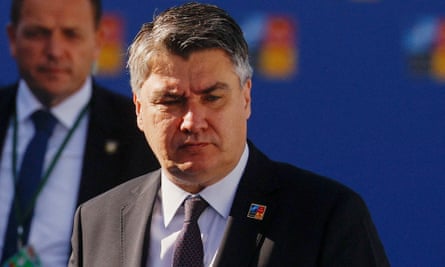
Milanović has refused to stop campaigning against HDZ, however, promising that his Rivers of Justice coalition, if it emerges victorious from the ballot, will wage an “uncompromising fight against corruption” and raise wages and pensions.
The president, who has said he will step down to become head of government if the Social Democratic party (SDP) wins, also opposes further aid for Ukraine, prompting fears that Croatia could align itself with more Moscow-friendly EU members such as Hungary and Slovakia.
HDZ has largely dominated Croatia’s politics since the country’s independence from Yugoslavia in 1991, overseeing its accession to the EU and the eurozone. Croatia posted economic growth of 2.8% last year, well above the EU average.
But opposition to what many critics see as a pattern of corruption and nepotism has grown, with Plenković’s recent appointment to state attorney general of a high-ranking HDZ-affiliated judge, Ivan Turudić, sparking street protests.
Ivan Rimac, a law professor at Zagreb University, said that during Plenković’s two terms in office, about 30 ministers had left government over corruption allegations in cases including serial misuse of EU funds and losses by public companies.
The president of the SDP, Peđa Grbin, said: “When, after 17 April, we get the chance to form a government, Croatia won’t be the same – not only because there won’t be state theft, but because we will take care of the real problems facing our citizens.”
after newsletter promotion
Polls suggest HDZ is likely to lose six of its MPs for a total of 60 in the 151-seat parliament. That would not be enough to hold its slim majority with minority ethnic and diaspora MPs who are guaranteed a role in government under Croatian law.
The SDP is projected to win about 44 seats, three more than in 2020, with the rightwing anti-immigration Homeland Movement on track to come third with 14 and the ecological Mozemo party on nine, making the right and the greens kingmakers.
Plenković, 54, said recently that a vote for HDZ meant “stability, security and development”, adding: “Even if there have been mistakes, we are fixing them … What we have is energy, enthusiasm, devotion and love for our homeland.”
The country’s longest-serving prime minister, who studied law and was posted as a diplomat to Brussels and Paris, has repeatedly accused Milanović of violating the constitution, using inappropriate language and harbouring “pro-Russian views”.
Milanović, who was prime minister from 2011 to 2016, has called Plenković a “liar”, a “political fake” and an “errand boy” for the president of the European Commission, Ursula von der Leyen. “My character is not easy, but I will not remain silent,” he wrote in a recent Facebook post, pledging to “form a national salvation government”.

